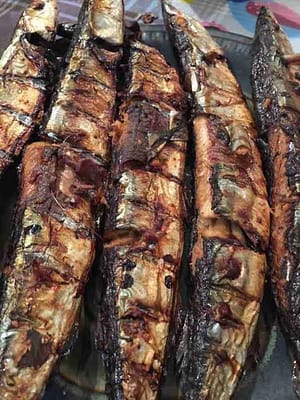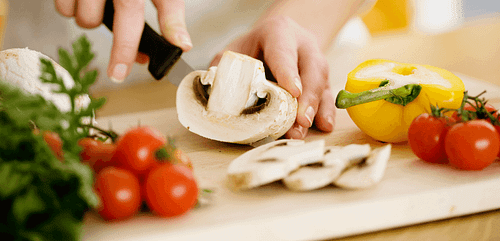I was talking to some students the other day about why is it that some people end up being good cooks and why others end up being not so good. The understanding we all agreed on was that cooking is a skill and as with any skill, some people manage to excel whilst others struggle. Why is that?
An interesting discussion ensued which resulted in us exploring the nature of skills and recognising that language as a skill as well.
Over the course of this exploration, we agreed that a good cook has to have standards they aspire to in the main areas that cover food – taste, colour, texture and presentation. If one of these areas is not recognised by them as important, than the food one gets served will surely be lacking in that quality. This may not be discernible to a “lay” person but someone who recognises quality will certainly pick up on it.
 The more “fussy” the cook is about what s/he thinks is “acceptable”, the more attentive will the cook be to ensure they achieve that standard. This attention to detail continues until the cook learns to consistently hit the target they set for themselves. As this standard becomes the norm for them, they can start to “cruise”, that is run more on auto pilot. When this happens , as their attention is freed up, they can choose to focus more on refinements to the dish, that before would not have even been on their radar.
The more “fussy” the cook is about what s/he thinks is “acceptable”, the more attentive will the cook be to ensure they achieve that standard. This attention to detail continues until the cook learns to consistently hit the target they set for themselves. As this standard becomes the norm for them, they can start to “cruise”, that is run more on auto pilot. When this happens , as their attention is freed up, they can choose to focus more on refinements to the dish, that before would not have even been on their radar.
If the cook however regards “basic” food as being good enough then there will be no effort made to do anything more. Why should they be attentive to what they do whilst they are cooking, or look for improvements ( through their own practice or from some external source like a book or a cooking show). Instead they can just replicate what they did last time.
Sometimes the impetus to improve, was noted, can be from who we cook for. Encouragement, appreciation, disdain, or even a lack of mention about one’s efforts can all affect how a cook may respond. Ultimately though it is entirely a person’s choice as to how much attention is paid to others’ opinions.
So what distinguishes a good cook? Here are some of the factors discussed:
– having a desire to cook well, possibly because they enjoy food themselves
– paying close attention to what they do
– looking for something to improve in and keeping at it till improvement is made
– looking for ways to improve, by reading, going out to dinner to see what others are cooking, etc
– finding the process of cooking interesting, engaging or satisfying.
So lets move this discussion to learning languages, as we did in the class. It is not hard to see that all of these issues have a direct relevance to learning languages, as both cooking and using a language is a skill. Seeing language as a skill is something that can be easily overlooked, as language has so many factors and has such seeming complexity. So we can end up the valuable lessons we can learn through this understanding.
 By learning to breakdown what we are learning into various skills, we can make a better fist of what we do. So the suggestion coming out of this is focus on one aspect of language learning and make it as goodas you can.
By learning to breakdown what we are learning into various skills, we can make a better fist of what we do. So the suggestion coming out of this is focus on one aspect of language learning and make it as goodas you can.
“Improve my grammar” for example is far too general. Here are some practical ideas:
- learn to express yourself your emotions with the exact words and tones needed
- learn to ask for something (etc) so well that it can’t be distinguished from how a native speaker would say it. Here you can separate the various skills that contribute to this, each one requiring work in its own right-
- the actual words used
- the tone
- the pronunciation of the words
- the melody
- work at a feature of grammar until you are crystal clear about it, from your study AND observation of how it is used by “the locals”. This observation IS critically important as without it, you stay at the formulaic intellectual level. MAKE sure you can say the form you are learning with ease, at the right time. With a skill, it is what you can do that will tell you what you know.
It is advantageous to understand that learning a skill has certain demands. By learning to identify discrete skills in learning a language, we can learn what it takes to master one. Once we can achieve that and learn to recognise the steps we took to achieve that, we can learn to replicate the process. Then we can apply that to any area of language and continue till we learn the language to the highest of levels.

[…] need to bring the focus back on improving skills and the way we go about doing that, not on doing more exercises, not on more studying. Just imagine […]
[…] strategy you are adding to your store of knowledge. Knowledge does not always transfer into skill. So you can study how to drive a car, but will that enable you to drive a […]
[…] Why Are Some People Good at Cooking from Strategies in Language learning // An interesting post on why some people become better language learners than others. […]